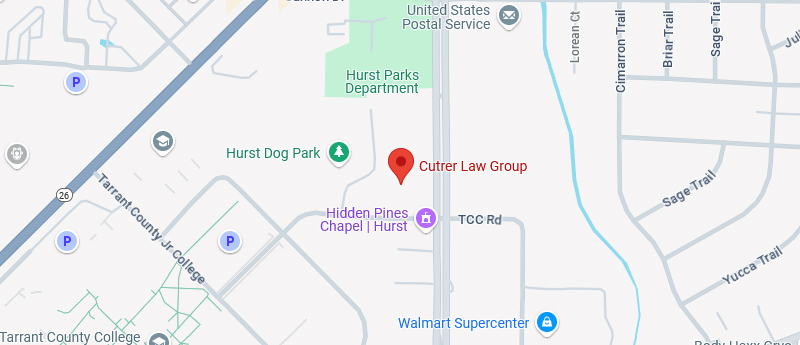I Have a Blended Family, How Can I Avoid Some Common Pitfalls in Estate Planning?
Blended families in Texas are becoming more common daily, and estate planning for these families can be unique and complex. Blended families often have rapidly evolving estates, complex family relationships, discord between ex-spouses and children, and more. Therefore, blended family estate planning is critical if you are serious about preserving legacies, mitigating estate taxes, and providing fairly and adequately for all your loved ones in the future.
Every experienced estate planning lawyer will tell you that no two blended families are alike, and there is no “cookie-cutter” approach to effectively handling their estate planning and financial future. However, there are usually some unique challenges to planning their future. Just a few of them are:
- Choosing your beneficiaries and possibly unintended disinheritance – Deciding who should get what in a blended family can be a huge issue, especially if you have biological children from a previous marriage, stepchildren, and an ex-spouse. You want to make sure your wishes are followed and whoever you designate gets what you intended them to.
- Dying without a will – Texas State law (Texas Estates Code § 201.001) doesn’t make provisions, nor does it commonly recognize stepchildren as legal relatives if you die without a will (or valid estate plan). Therefore, part of your family, which you wish to inherit assets from, etc., may be left out in the cold.
- Balancing a rational and fair Interest—You want a fair balance between providing for your current spouse, loved ones from your previous relationship, and children from your new marriage; this is only possible with thoughtful, strategic estate planning.
- Choosing executors, powers of attorney, etc. – Choosing the right executor(s) or powers of attorney becomes highly problematic. You want to ensure these decisions align with your current wishes and blended family.
These various duties (executor, etc.) come with great responsibility and legal authority. Therefore, you must be 100% positive that you can trust and rely on this person to fulfill the position and fully fulfill your wishes for everyone in your blended family.
Critical roles, such as executors, are important in any estate plan. However, when you have a blended family, the interplay, inter-relationships, etc., become even more complex. Therefore, obtaining a Texas estate planning lawyer’s experience, professional and compassionate advice, and guidance is always a wise and prudent move.
Are Trusts a Valuable Estate Planning Tool in Blended Texas Families?
Trusts are valuable legal tools that allow you to designate a trustee to manage your assets strictly according to your wishes. For blended families, trusts work exceptionally well to establish and ensure fair asset distribution to all concerned, such as children from previous relationships. These tools can be designed precisely, distribute assets according to your wishes, and provide ongoing financial support for all your children or manage assets for beneficiaries with special needs. They are highly flexible and allow you to customize your trust to almost any unique family situation, safeguarding each child’s and beneficiary’s inheritance.
In Texas, the probate process is very complex, open to the public, and usually costly. In a blended family, probate is also prone to sow conflict within fragile family dynamics. With a professional and properly structured trust, you can define the terms of your distribution of wealth, etc., with outstanding clarity and eliminate ambiguity. If drafted by a professional estate planning lawyer, your trust will allow you to control how and when your assets are distributed, providing you with significant peace of mind.
In a Blended Family, is a Will Usually Enough to Distribute Your Assets Upon Your Death?
Although a Will is a fundamental legal document that specifies how you want your assets distributed after your death, it can be a first step. However, it may not be enough, given the many factors involved in a blended family situation. Additionally, a Will must go through the Texas probate courts, which is a lengthy, expensive process that, in a blended family, could cause enormous contention and familial discord. It only provides limited control over how your assets are distributed and utilized, particularly for minor children or family members with special needs. Also, the language usually used in a will may have a negative effect on your estate. Without the ability to use precise and crystal-clear language regarding stepchildren and beneficiaries from previous marriages, a simple Will almost always causes conflict or leaves room for misinterpretation. Vague terms like “to my son “or “my personal belongings” can complicate your Will and create unnecessary friction during an agitated and stressful time.
Your empathetic, thorough, and well-versed estate planning lawyer, who is well-versed in working with blended families, will explain that although these families bring unique joy and love, they also often present complex challenges. So, when your estate is involved, legal tools such as estate plans provide precise legal documentation that outlines your wishes, ensuring no battlegrounds of resentment and confusion after your passing.
What Are Some of The Best Types of Trusts for Blended Families?
Once again, every blended family and their needs differ, but certain types of trusts are more commonly used to help in this scenario. Just a few of them are:
- A revocable living trust—With this type of trust, you retain full control of your assets during your lifetime, and the trust takes effect only upon your death. This option is excellent for maintaining control during your life while ensuring a smooth transition after your death.
- The spousal bypass trust – This tool effectively protects assets for your surviving spouse while ensuring that a specific amount of your assets passes to your children from a previous marriage.
- A Life Insurance Trust – This provides flexibility in managing life insurance payouts and ensures this money is used exactly as you had planned.
It cannot be overemphasized that each blended family situation is different. To effectively, empathetically, and rationally solve all the issues your death may cause, a Texas estate planning lawyer must provide guidance, experience, and rational advice.
I’m Considering an Estate Plan For My Blended Family; How Should I Proceed?
In most families, but especially in blended families, when considering estate planning, the counsel and support of an experienced, empathetic estate planning lawyer can go a long way toward making more informed decisions and creating rational, well-thought-out plans. When considering your family’s future, blended families are always more legally complex, and thorough, expert; professional guidance is mandatory for success.
The highly experienced, empathetic, and thorough estate planning lawyers at the Texas-based Cutrer Law Group have over 20 years of extraordinary and compassionate representation and are well-versed in the challenges that planning the future for blended families presents. Call them today at 817-854-1651. They will carefully listen to your specific goals and draft an estate plan that encompasses all of your blended family members and protects their future rationally and legally.





 1845 Precinct Line Road
1845 Precinct Line Road info@akcfamilylaw.com
info@akcfamilylaw.com 817-854-1651
817-854-1651



